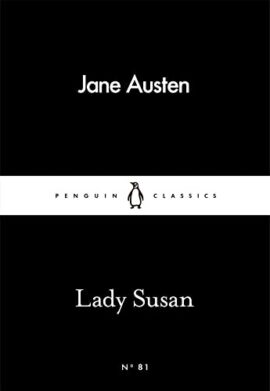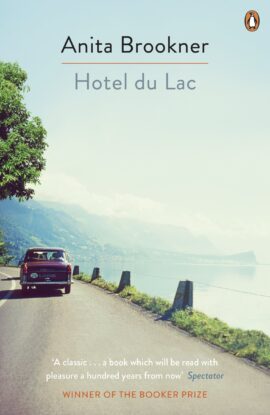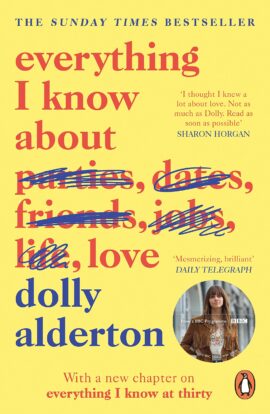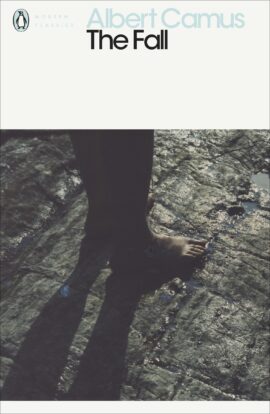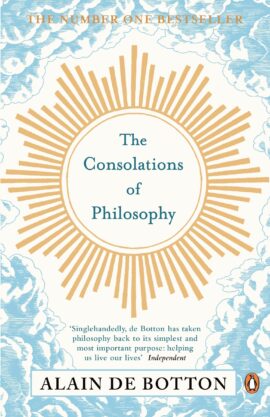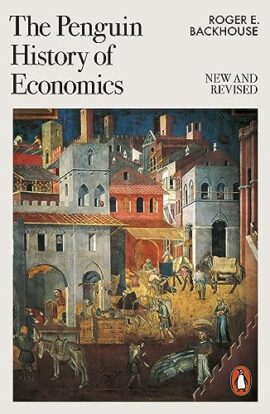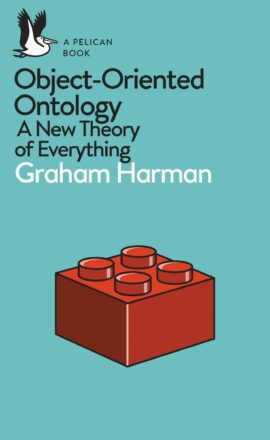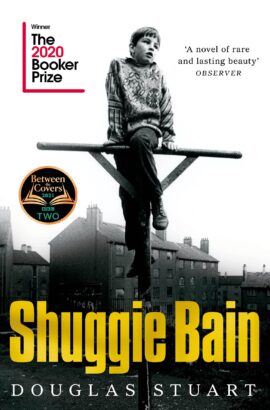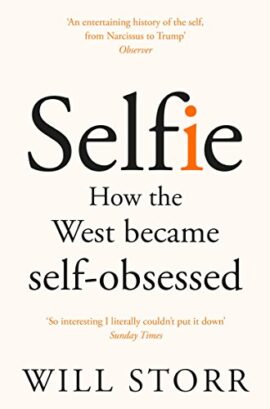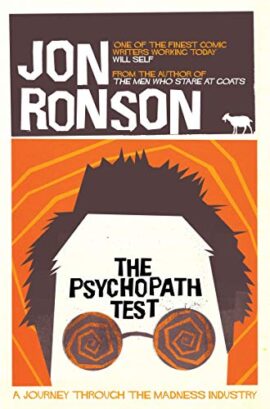Affichage de 937–948 sur 1221 résultatsTrié par popularité
Lady Susan (Penguin Little Black Classics)
'Of what a mistake were you guilty in marrying a Man of his age! - just old enough to be formal, ungovernable and to have the Gout - too old to be agreable, and too young to die.' The scheming and unscrupulous Lady Susan is unlike any Austen heroine you've met in this fascinating early novella. One of 46 new books in the bestselling Little Black Classics series, to celebrate the first ever Penguin Classic in 1946. Each book gives readers a taste of the Classics' huge range and diversity, with works from around the world and across the centuries - including fables, decadence, heartbreak, tall tales, satire, ghosts, battles and elephants.
Hotel Du Lac
Winner of the Booker Prize 'The Hotel du Lac was a dignified building, a house of repute, a traditional establishment, used to welcoming the prudent, the well-to-do, the retired, the self-effacing, the respected patrons of an earlier era' Into the rarefied atmosphere of the Hotel du Lac timidly walks Edith Hope, romantic novelist and holder of modest dreams. Edith has been exiled from home after embarrassing herself and her friends. She has refused to sacrifice her ideals and remains stubbornly single. But among the pampered women and minor nobility Edith finds Mr Neville, and her chance to escape from a life of humiliating loneliness is renewed . . . 'A classic . . . a book which will be read with pleasure a hundred years from now' Spectator
Everything I Know About Love
THE SUNDAY TIMES BESTSELLER WITH A NEW CHAPTER ON TURNING THIRTY*Winner of Autobiography of the Year at the National Book Awards 2018**Shortlisted for the Waterstones Book of the Year 2018*Award-winning journalist Dolly Alderton survived her twenties (just about) and in Everything I Know About Love, she gives an unflinching account of the bad dates and squalid flat-shares, the heartaches and humiliations, and most importantly, the unbreakable female friendships that helped her to hold it all together. Glittering with wit, heart and humour, this is a book to press into the hands of every woman who has ever been there or is about to find themselves taking that first step towards the rest of their lives.***************'Alderton is Nora Ephron for the millennial generation' Elizabeth Day'Steeped in furiously funny accounts of one-night stands, ill-advised late-night taxi journeys up the M1, grubby flat-shares and the beauty of female friendships, as Alderton joyfully booze-cruises her way through her twenties' Metro'Deeply funny, sometimes shocking, and admirably open-hearted and optimistic' Daily Telegraph'The book we will thrust into our friends' hands . . . that will help heal a broken heart. Alderton's wise words can resonate with women of all ages. She feels like a best friend and your older sister all rolled into one and her pages wrap around you like a warm hug' Evening Standard'A sensitive, astute and funny account of growing up millennial' Observer'I loved its truth, self awareness, humour and most of all, its heart-spilling generosity' Sophie Dahl 'Alderton proves a razor-sharp observer of the shifting dynamics of long term female friendship' Mail on Sunday'It's so full of life and laughs - I gobbled up this book. Alderton has built something beautiful and true out of many fragments of daftness' Amy Liptrot
The Modern Classics Myth of Sisyphus (Penguin Modern Classics)
The summation of the existentialist philosophy threaded throughout all his writing, Albert Camus' The Myth of Sisyphus is translated by Justin O'Brien with an introduction by James Wood in Penguin Books Ltd. In this profound and moving philosophical statement, Camus poses the fundamental question: is life worth living? If human existence holds no significance, what can keep us from suicide? As Camus argues, if there is no God to give meaning to our lives, humans must take on that purpose themselves. This is our 'absurd' task, like Sisyphus forever rolling his rock up a hill, as the inevitability of death constantly overshadows us. Written during the bleakest days of the Second World War, The Myth of Sisyphus (Le Mythe de Sisyphe) argues for an acceptance of reality that encompasses revolt, passion and, above all, liberty. This volume contains several other essays, including lyrical evocations of the sunlit cities of Algiers and Oran, the settings of his great novels The Outsider and The Plague. Albert Camus (1913-60) is the author of a number of best-selling and highly influential works, all of which are published by Penguin. They include The Fall, The Outsider and The First Man. Awarded the Nobel Prize for Literature in 1957, Camus is remembered as one of the few writers to have shaped the intellectual climate of post-war France, but beyond that, his fame has been international. If you enjoyed The Myth of Sisyphus, you might like Camus' The Outsider, also available in Penguin Modern Classics. 'Camus could never cease to be one of the principal forces in our domain, nor to represent, in his own way, the history of France and of this century' Jean-Paul Sartre
The Fall
Jean-Baptiste Clamence is a soul in turmoil. Over several drunken nights he regales a chance acquaintance with his story. From this successful former lawyer and seemingly model citizen a compelling, self-loathing catalogue of guilt, hypocrisy and alienation pours forth. "The Fall" (1956) is a brilliant portrayal of a man who has glimpsed the hollowness of his existence. But beyond depicting one man's disillusionment, Camus's novel exposes the universal human condition and its absurdities - and our innocence that, once lost, can never be recaptured.
The Consolations of Philosophy
The Penguin History of Economics
The definitive guide to the history of economic thought, fully revised twenty years after first publicationRoger Backhouse's definitive guide takes the story of economic thinking from the ancient world to the present day, with a brand-new chapter on the twenty-first century and updates throughout to reflect the latest scholarship.Covering topics including globalisation, inequality, financial crises and the environment, Backhouse brings his breadth of expertise and a contemporary lens to this original and insightful exploration of economics, revealing how we got to where we are today.
Object-Oriented Ontology: A New Theory of Everything (Pelican Books)
We humans tend to believe that things are only real in as much as we perceive them, an idea reinforced by modern philosophy, which privileges us as special, radically different in kind from all other objects. But as Graham Harman, one of the theory's leading exponents, shows, Object-Oriented Ontology (OOO) rejects the idea of human specialness: the world, he states, is clearly not the world as manifest to humans. "To think a reality beyond our thinking is not nonsense, but obligatory." At OOO's heart is the idea that objects—whether real, fictional, natural, artificial, human, or non-human—are mutually autonomous. This core idea has significance for nearly every field of inquiry which is concerned in some way with the systematic interaction of objects, and the degree to which individual objects resist full participation in such systems. In this brilliant new introduction, Graham Harman lays out OOO's history, ideas, and impact, taking in art and literature, politics and natural science along the way. From Sherlock Holmes, unicorns, and videogames to Dadaism, Voltaire, and string theory, this book will change the way you understand everything.
A Pelican Book: Islam: The Essentials
The essential introduction to Islam by a leading expert Hardly a day goes by without mention of Islam. And yet, for most people, and in much of the world, Islam remains a little-known religion. Whether the issue is violence, terrorism, women's rights or slavery, Muslims are today expected to provide answers and to justify what Islam is - or is not. But little opportunity exists, either in the media or in society as a whole, to describe Islam: precisely the question this short and extremely accessible book sets out to answer. In simple, direct language it will introduce readers to Islam, to its spirituality, its principles, its rituals, its diversity and its evolution.
Shuggie Bain
Shuggie Bain is the unforgettable story of young Hugh "Shuggie" Bain, a sweet and lonely boy who spends his 1980s childhood in run-down public housing in Glasgow, Scotland. Thatcher's policies have put husbands and sons out of work, and the city's notorious drugs epidemic is waiting in the wings. Shuggie's mother Agnes walks a wayward path: she is Shuggie's guiding light but a burden for him and his siblings. She dreams of a house with its own front door while she flicks through the pages of the Freemans catalogue, ordering a little happiness on credit, anything to brighten up her grey life. Married to a philandering taxi-driver husband, Agnes keeps her pride by looking good--her beehive, make-up, and pearly-white false teeth offer a glamourous image of a Glaswegian Elizabeth Taylor. But under the surface, Agnes finds increasing solace in drink, and she drains away the lion's share of each week's benefits--all the family has to live on--on cans of extra-strong lager hidden in handbags and poured into tea mugs. Agnes's older children find their own ways to get a safe distance from their mother, abandoning Shuggie to care for her as she swings between alcoholic binges and sobriety. Shuggie is meanwhile struggling to somehow become the normal boy he desperately longs to be, but everyone has realized that he is "no right," a boy with a secret that all but him can see. Agnes is supportive of her son, but her addiction has the power to eclipse everyone close to her--even her beloved Shuggie.A heartbreaking story of addiction, sexuality, and love, Shuggie Bain is an epic portrayal of a working-class family that is rarely seen in fiction. Recalling the work of Édouard Louis, Alan Hollinghurst, Frank McCourt, and Hanya Yanagihara, it is a blistering debut by a brilliant novelist who has a powerful and important story to tell.
Selfie: How the West Became Self-Obsessed
‘Fascinating’ Guardian‘Brilliant’ Evening Standard‘Electrifying’ Financial Times‘So interesting I literally couldn’t put it down’ Sunday TimesWe live in the age of the individual. We are supposed to be slim, prosperous, happy, extroverted and popular. This is our culture’s image of the perfect self. We see this person everywhere: in advertising, in the press, all over social media. We’re told that to be this person you just have to follow your dreams, that our potential is limitless, that we are the source of our own success.But this model of the perfect self can be extremely dangerous. People are suffering under the torture of this impossible fantasy. Unprecedented social pressure is leading to increases in depression and suicide. Where does this ideal come from? Why is it so powerful? Is there any way to break its spell?To answer these questions, Selfie by Will Storr takes us from the shores of Ancient Greece, through the Christian Middle Ages, to the self-esteem evangelists of 1980s California, the rise of narcissism and the selfie generation, and right up to the era of hyper-individualistic neoliberalism in which we live now.It tells the extraordinary story of the person we all know so intimately – our self.As featured on Russell Brand's Under The Skin podcast.
Psychopath Test: A Journey Through the Madness Industry
What if society wasn't fundamentally rational, but was motivated by insanity? This thought sets Jon Ronson on an utterly compelling adventure into the world of madness.Along the way, Jon meets psychopaths, those whose lives have been touched by madness and those whose job it is to diagnose it, including the influential psychologist who developed the Psychopath Test, from whom Jon learns the art of psychopath-spotting. A skill which seemingly reveals that madness could indeed be at the heart of everything . . .Combining Jon Ronson's trademark humour, charm and investigative incision, The Psychopath Test is both entertaining and honest, unearthing dangerous truths and asking serious questions about how we define normality in a world where we are increasingly judged by our maddest edges.









